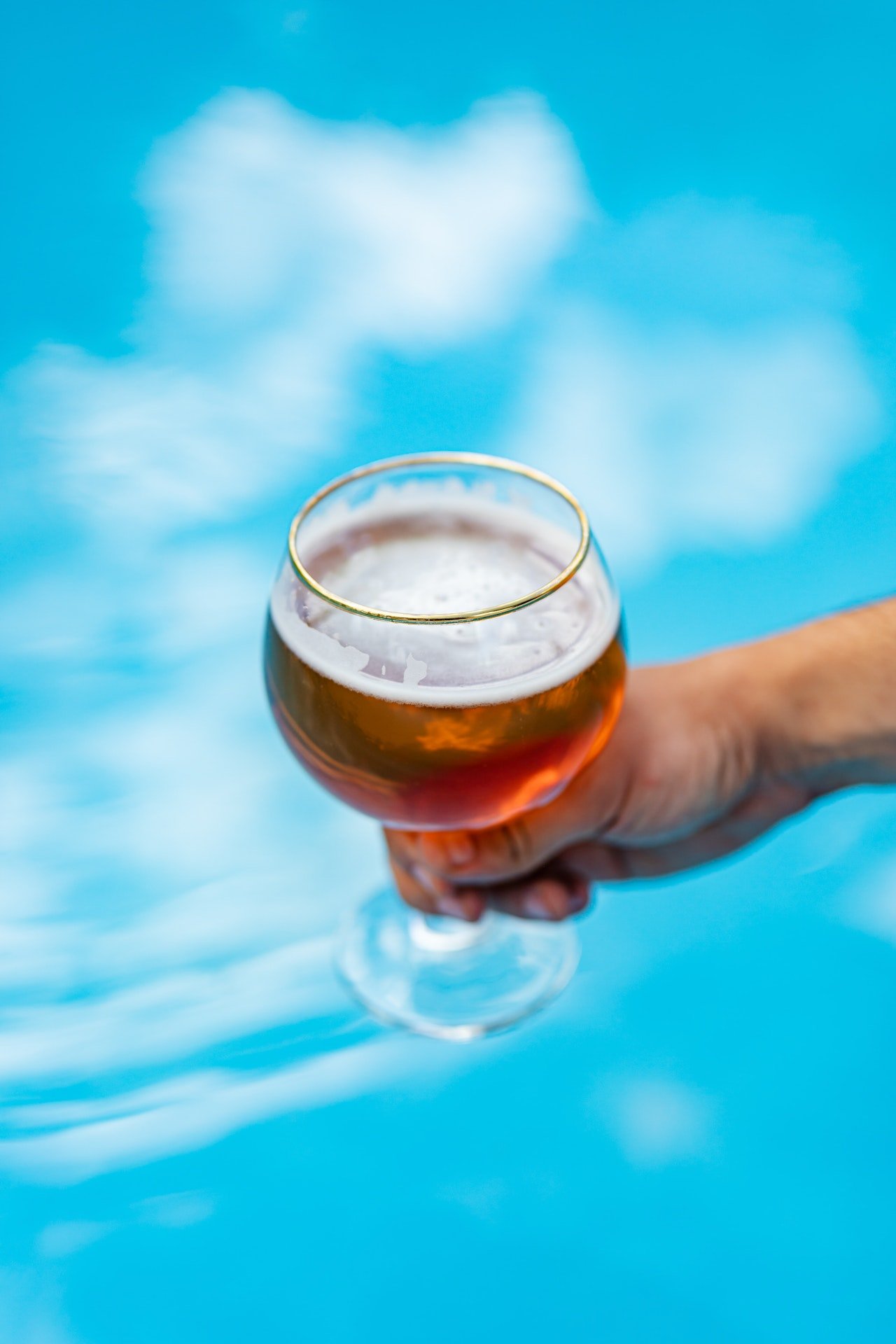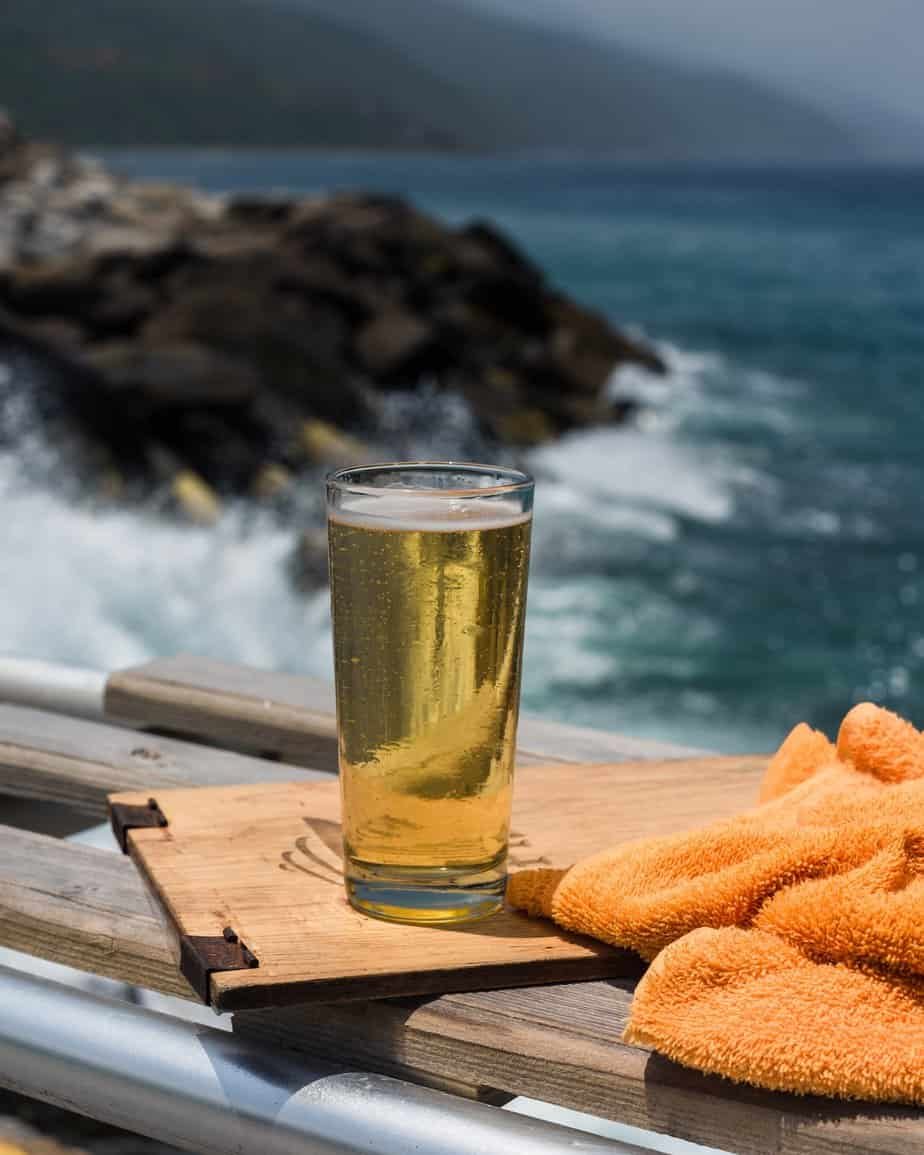We all know that beer is mostly water. But have you ever wondered how much water is actually in your favorite brew? According to a study by the University of Colorado Boulder, the average 12-ounce can of beer contains about 95% water. That means that for every 100 grams (3.5 ounces) of beer you drink, about 95 grams (3.4 ounces) of it is water. So, if you’re looking to stay hydrated while enjoying a cold one, beer may not be the best option – but it’s not the worst either!
What Is Water In Beer?
Water is an essential ingredient in beer. It makes up the majority of a beer’s volume and plays an important role in the brewing process. Water interacts with the other ingredients in beer to create the final product. It dissolves the sugars that will be fermented by yeast, extracts flavor and color from the malt, and helps to cool and clarify the beer during fermentation.
The quality of water used in brewing beer is important. Water that is too hard or too soft can affect the taste of the final product. The mineral content of water can also impact the flavor of the beer. For example, water with a high mineral content may make beer taste metallic.
Most brewers use treated municipal water that has been filtered and/or treated with chemicals to adjust the mineral content. Some brewers, especially those brewing beer styles that are known for their water quality, may use natural spring water or even distilled water.
Read: Does Beer Or Liquor Dehydrate More?
How Much Water Is In Beer?
While water is the main ingredient in beer, it is not the only ingredient. The other ingredients in beer include malt, yeast, and hops. These ingredients add flavor, color, and bitterness to the final product. The percentage of each ingredient varies depending on the style of beer being brewed.
For example, a light lager may contain as little as 2-6% malt, while a dark stout can contain up to 50% malt. The type of yeast used will also impact the final flavor of the beer. Ale yeast ferments at a warmer temperature and tends to produce fruitier flavors, while lager yeast ferments at a cooler temperature and produces cleaner, crisper flavors.
The amount of water in beer can also vary depending on the style of beer. Some styles, like India pale ales (IPAs), are known for their high hop content, which can add bitterness and dryness to the final product. Other styles, like stouts, are known for their full-bodied, creamy texture. This is achieved by using a larger amount of malt, which also adds sweetness to the beer.
How Much Water Is In A 12 Oz. Can Of Beer?
On average, a 12 oz. can of beer contains 95% water. That means that for every 100 grams (3.5 ounces) of beer you drink, about 95 grams (3.4 ounces) of it is water. So, if you’re looking to stay hydrated while enjoying a cold one, beer may not be the worst option – but it’s not the best either!
What Causes The Difference In Water Content In Beer?
The water content of beer can vary depending on the brewing process and the ingredients used. For example, a beer that is brewed with a lot of hops may have a lower water content than beer that is brewed with fewer hops. This is because hops are a natural preservative and help to prevent spoilage.
Another factor that can impact the water content of beer is alcohol. Alcohol is a natural dehydrator and can cause the body to lose water. So, a beer that has a higher alcohol content will generally have lower water content.
Finally, the type of container that beer is packaged in can also affect its water content. For example, a beer that is canned or bottled under pressure will have a lower water content than a beer that is not. This is because the pressure forces the water out of the beer and into the container.
Also Read: Is Drinking Beer Better In A Glass Or Bottle?
How Much Water Is In A 12-pack Of Beer?
A 12-pack of beer contains about 1110 grams (39 ounces) of water. This is based on the average 12 oz. can of beer containing 95% water. So, if you’re looking to stay hydrated, you’re better off drinking a couple of glasses of water than downing an entire 12-pack!

Risks Of Consuming Too Much Alcohol And Too Much Water At Once
Drinking too much alcohol can lead to dehydration. This is because alcohol is a natural diuretic, which means it causes the body to lose water. When the body loses too much water, it can lead to serious health problems like heat stroke, kidney failure, and even death.
Drinking too much water can also be dangerous. This is because consuming too much water can cause the body to dilute the electrolytes in its blood. This can lead to a condition called hyponatremia, which can be fatal.
Must Read: Does Beer Clean Jewelry?
So, it’s important to stay hydrated while drinking alcohol, but it’s also important not to overdo it. A good rule of thumb is to drink one glass of water for every alcoholic beverage you consume. This will help to keep your body hydrated and prevent health problems.
Conclusion
Water is an essential ingredient in beer. It makes up the majority of a beer’s volume and plays an important role in the brewing process. Water interacts with the other ingredients in beer to extract flavor and color, and also helps to cool and clarify the beer during fermentation.
The quality of water used in brewing beer is important. Water that is too hard or too soft can affect the taste of the final product. The mineral content of water can also impact the flavor of the beer. Most brewers use treated municipal water that has been filtered and/or treated with chemicals to adjust the mineral content.
The water content of beer can vary depending on the brewing process and the ingredients used. On average, a 12 oz. can of beer contains 95% water. However, a beer that is brewed with a lot of hops or has a high alcohol content will generally have a lower water content.
Drinking too much alcohol can lead to dehydration, so it’s important to stay hydrated while drinking. A good rule of thumb is to drink one glass of water for every alcoholic beverage you consume. This will help to keep your body hydrated and prevent health problems.
Recent Posts
Does Bud Light Seltzer Taste Like Beer? - Unveiling the Flavor Profile
The popularity of hard seltzers has risen dramatically in recent years, with an increasing number of consumers seeking a lighter, refreshing alternative to traditional alcoholic beverages. Bud Light...
How to Flavor Moonshine with Extract: Tips and Tricks for a Delicious Batch
Moonshine, a homemade distilled spirit, has a reputation for its strong flavor and robust alcohol content. Many people find the taste too harsh to enjoy on its own, which is why flavoring moonshine...

